01:06
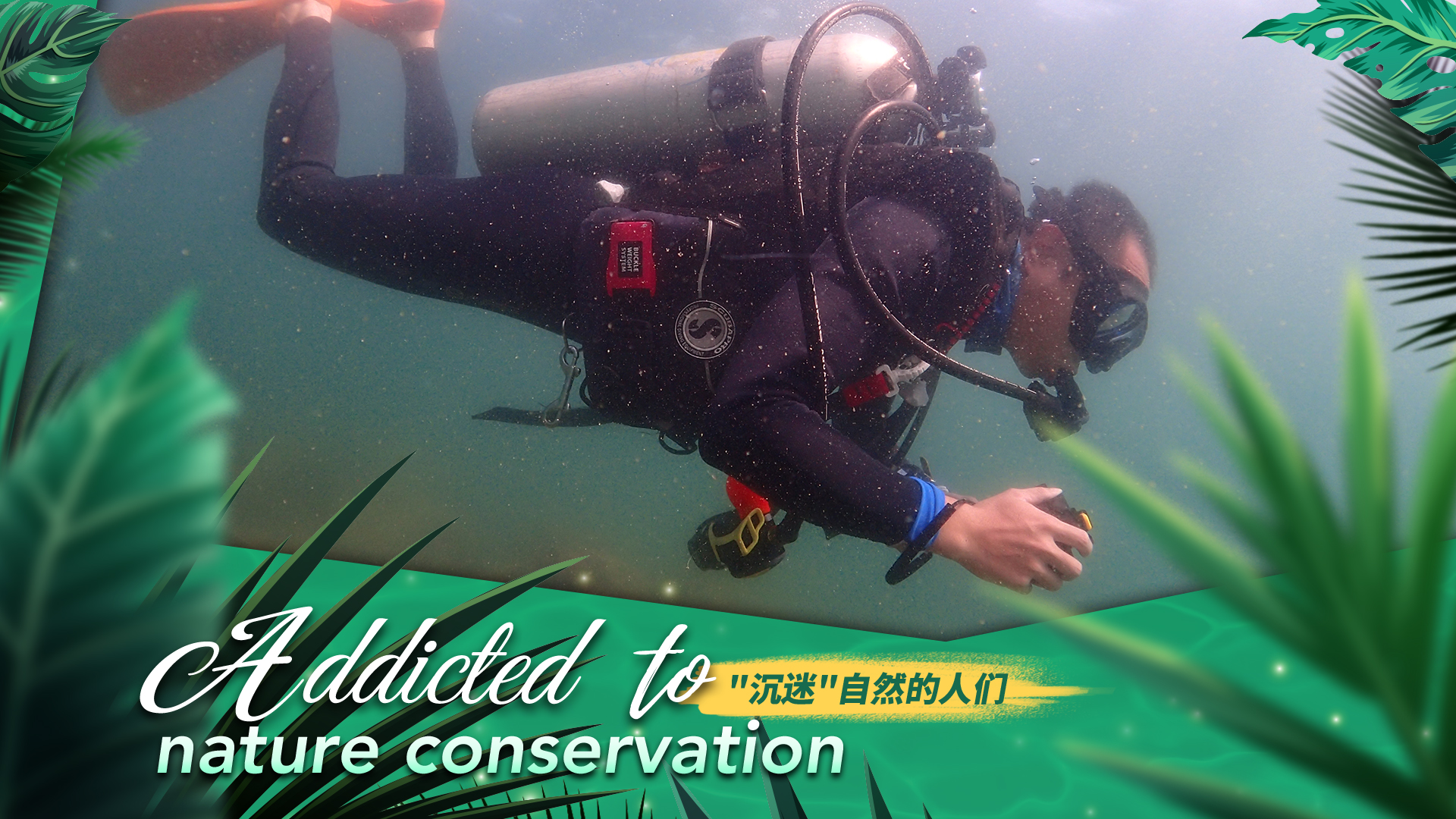
Many people dive into the ocean to enjoy the underwater world, while in Shenzhen City, south China's Guangdong Province, there's a squad diving into the ocean to plant corals to restore the coral reef ecosystem.
Every year, 500 to 600 people volunteer for the coral general investigation, and 200 to 300 volunteer for coral planting. Led by the Shenzhen Institute of Guangdong Ocean University (SZIGOU), they form a squad made up of certified diving lovers from all walks of life, ranging in age from 14 to 65, for the same goal: saving the vulnerable coral reef ecosystem.
They plant corals on a nursery-garden-styled platform attached to a plate of artificial coral reef, and release coral reef organisms. As the corals grow, more coral reef marine life is attracted, creating a complete ecosystem.
Since 2009, they have planted more than 200,000 corals with a survival rate reaching 85 percent mainly in the waters of Shenzhen City and Hainan Province, covering an area of about 200 hectares, about the size of 280 soccer fields. In parts of Dapeng Bay in Shenzhen, they planted about 60,000 corals, a 10 percent increase in coverage, according to Liao Baolin, a senior engineer at the SZIGOU.
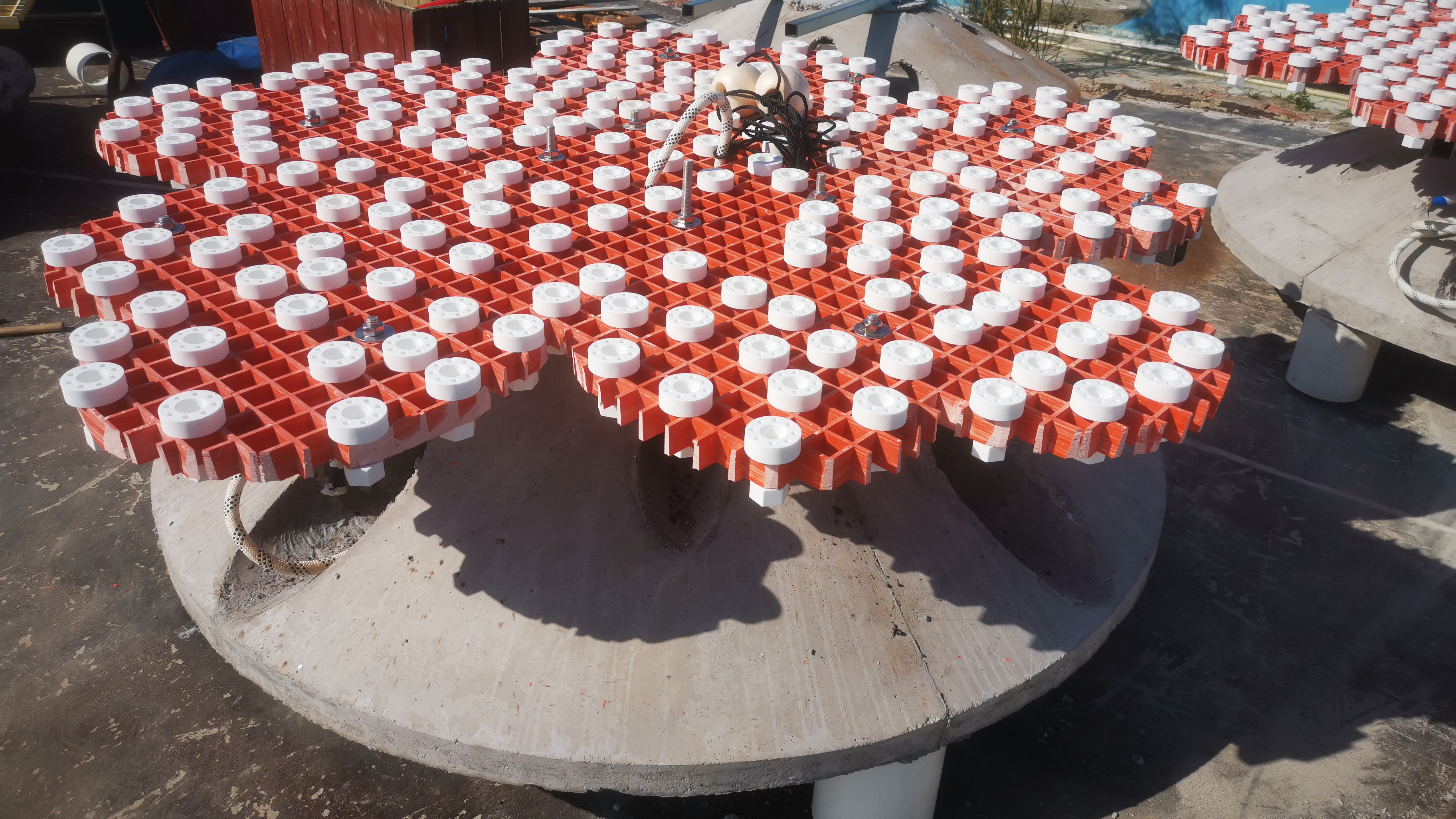
Model of the artificial coral reef.
Model of the artificial coral reef.
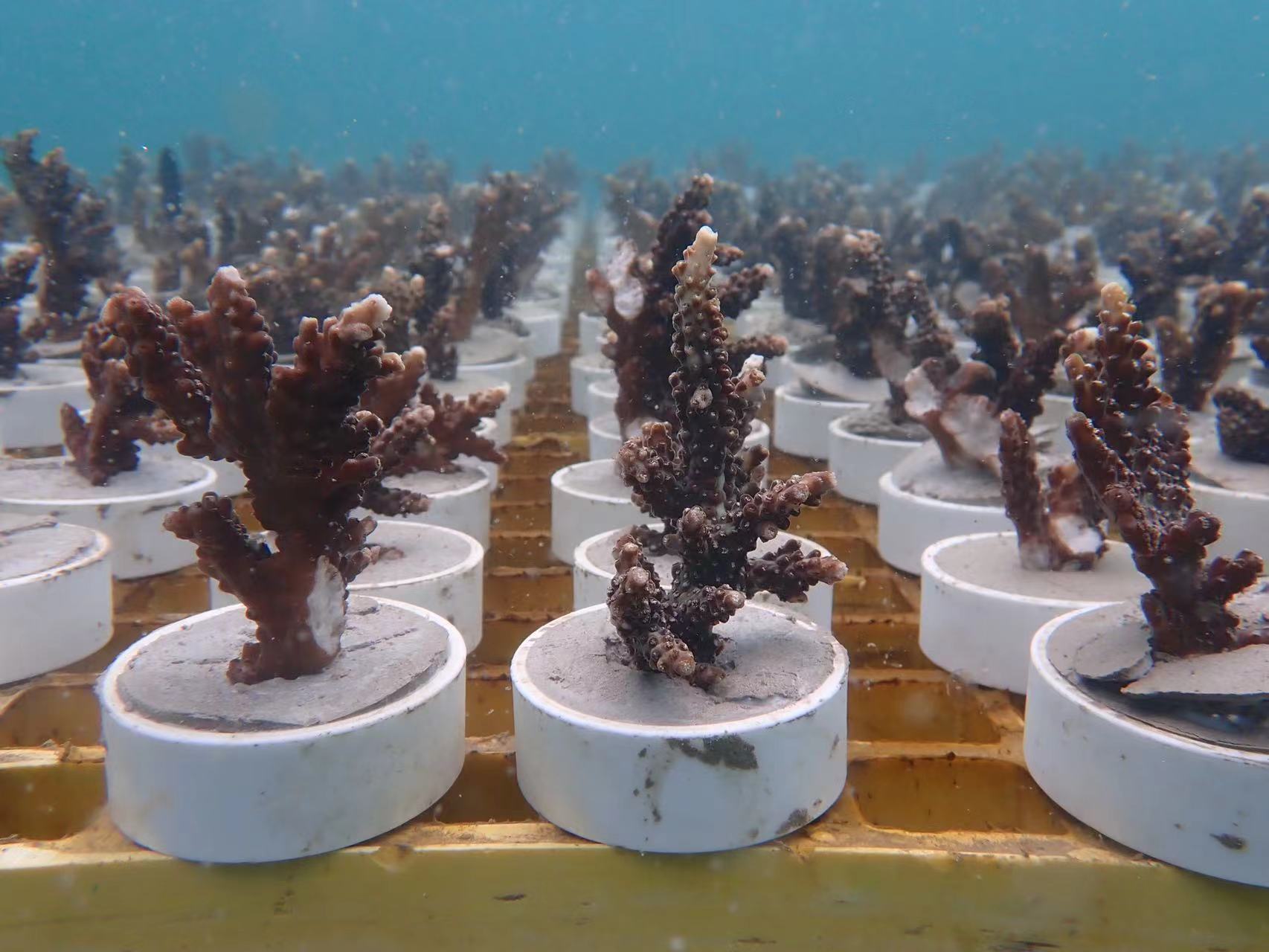
Corals planted in the ocean.
Corals planted in the ocean.
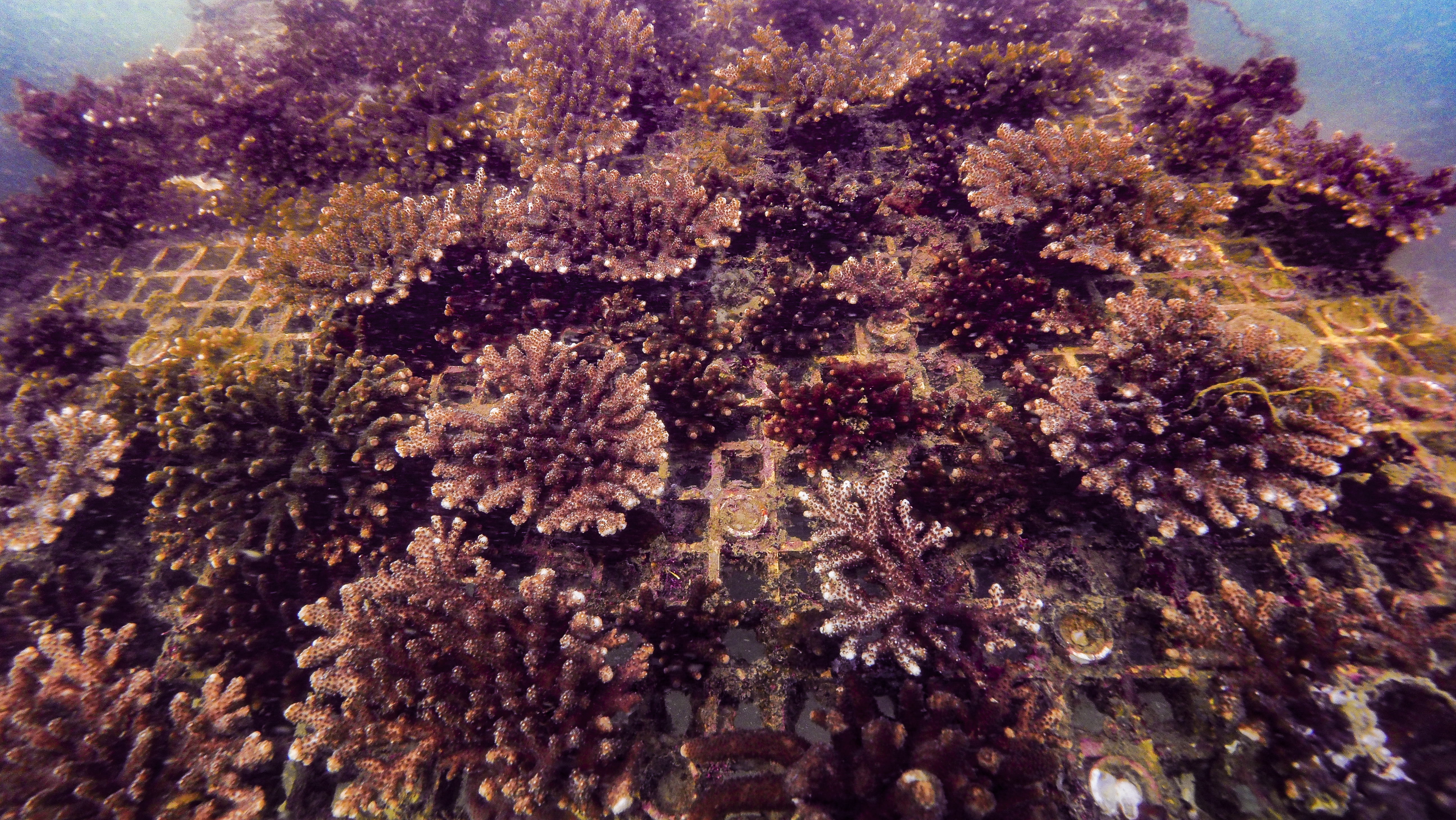
Corals planted in the ocean.
Corals planted in the ocean.
Why do they plant corals?
Home to 25 percent of all marine life, corals are essential to the biological balance of the ocean. The geological formation of coral reefs protects our land from wind and wave erosion. Also, it has the function of carbon sequestration and regulates the global climate to some extent.
However, due to climate change and human activities, their survival is threatened.
"Due to rising water temperatures, corals have begun to move north and grow in areas that were previously devoid of corals, such as the waters in northern Fujian Province. China's corals have some resilience to warmer waters. However, in recent years, it has also been found that a large area of coral die-off occurred from western Hainan to Beibu Gulf due to rising water temperature, which has never happened in the past decade or so," said Liao.
The loss of corals from hunting has changed in recent years as national marine conservation efforts and people's awareness of environmental protection have increased, but human activities near shore are still threatening the coral's survival. For example, the suspended sediment from marine engineering and shipping can suffocate corals.
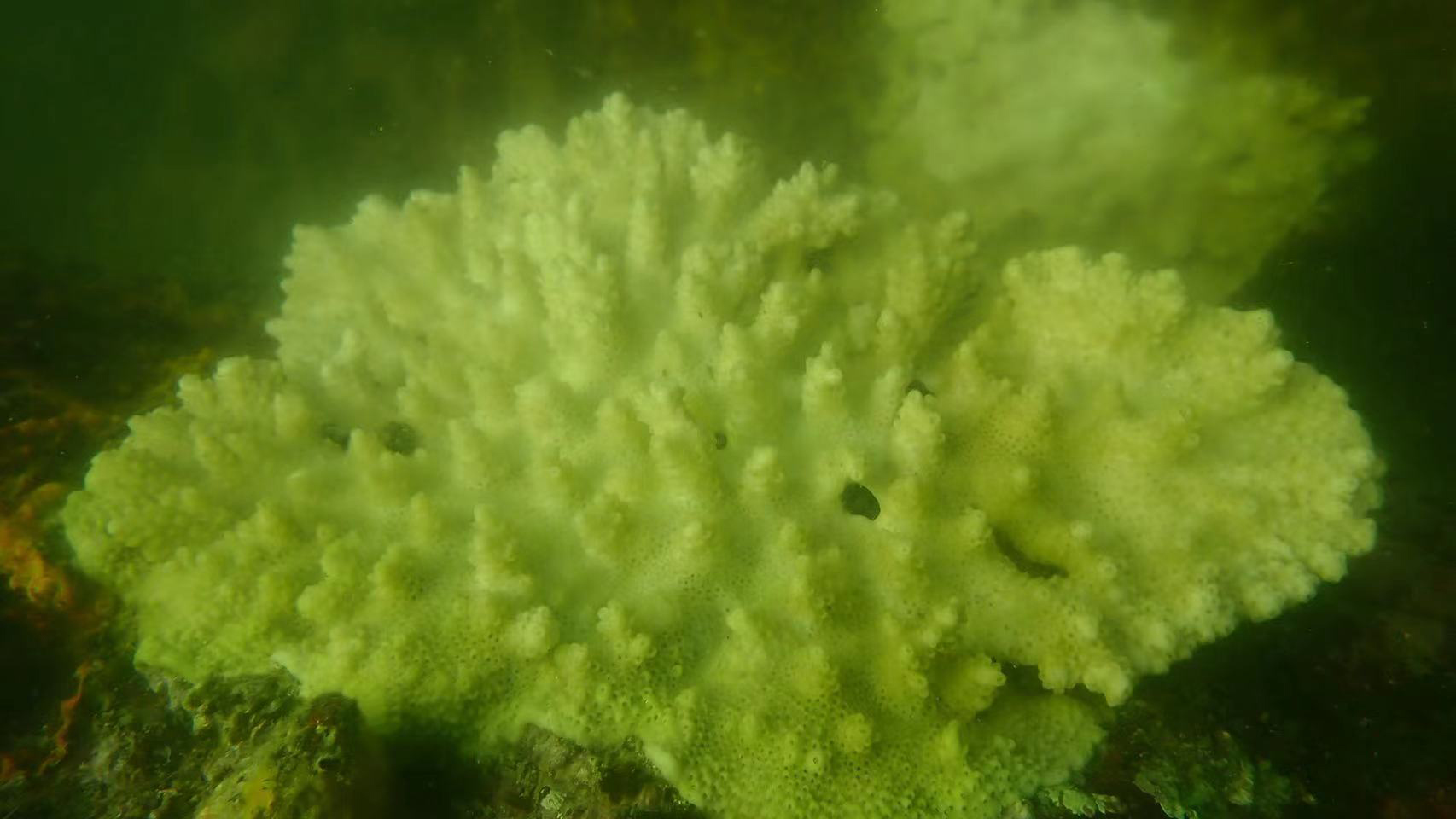
Phenomenon of coral bleaching and death.
Phenomenon of coral bleaching and death.
New mode of government-enterprise-organization collaboration
In June 2018, guided by Shenzhen government and funded by Shenzhen Natural Gas Co. LTD of China National Offshore Oil Corporation, the SZIGOU planted 33,600 corals in Dapeng Bay waters, creating a new mode of ecological compensation.
The government requires companies to invest ecological compensation money in areas where their projects have caused ecological damage. The companies also need to find organizations for ecological restoration, instead of handing over the money directly to the government. In other words, if an enterprise causes ecological damage to an area, it will have to spend money to restore the area.
About 'Addicted to nature conservation'
Biodiversity, climate change and environment topics are not new, but more and more people have devoted themselves to nature conservation. Some of them are rangers, guarding the forests and protecting local biodiversity; some of them work on desertification control; generations of them spent their lives changing the desert into a green land; some are scientists and researchers, they use the latest knowledge and methods to guide others for a shared future. From April 29 to May 4, CGTN Nature presents stories of those addicted to nature conservation.
For more:
What is it like to be a whale scientist?
The unstoppable force in the battle against desertification in China
Generations that brought green to the seventh biggest desert in China
The cleaners of our nature
(Videos and photos are provided by Liao Baolin)
(If you want to contribute and have specific expertise, please contact us at nature@cgtn.com.)